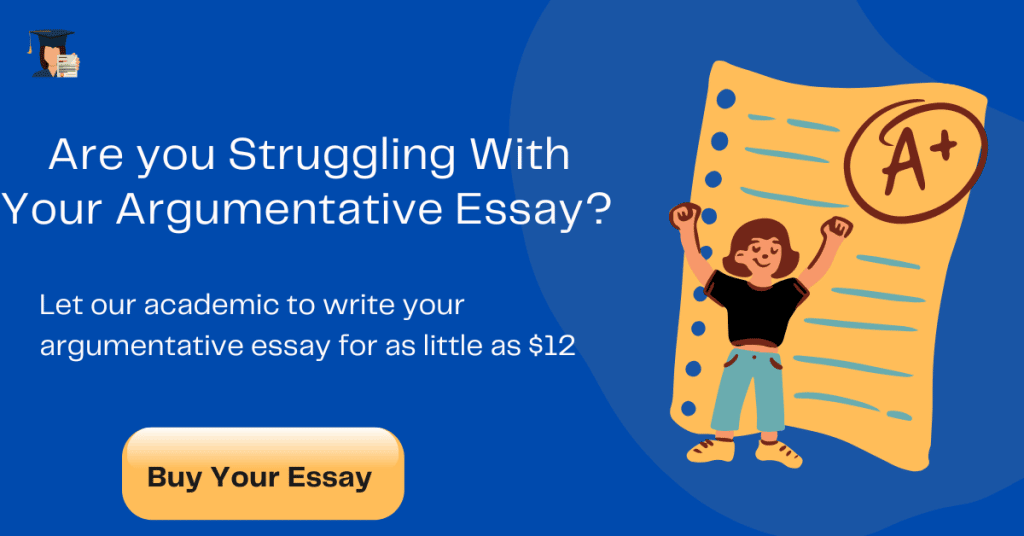Argumentative essay transition words are words and phrases used to connect and link ideas, sentences, and paragraphs in an argumentative essay. They are crucial in creating a clear and logical structure in an argumentative essay. They help the reader follow the flow of ideas and understand the relationships between ideas, different claims, and evidence presented.
Transitional phrases are essential in argumentative essays because they help to establish connections between ideas, provide coherence to the argument, and make the essay easier to follow, especially in academic writing. They allow the writer to guide the reader through the argument by showing how one idea or claim leads to the next, how the evidence supports a claim, or how two contrasting or similar ideas are related. By using transition words effectively, the writer can create a solid and compelling argument that is easy to understand and engaging to read. You can get more help with your argumentative essay from Bright Writers.
Types of Transition Words
Here is a list of common transition words that can be used in argumentative essay writing
Addition
These transition words add information, ideas, or evidence to the argument. Examples include:
- Additionally
- Furthermore
- Moreover
- In addition
- Also
- Likewise
- Furthermore, it has been shown that exercise can also improve cognitive function.
Contrast
- However
- On the other hand
- In contrast
- Nevertheless
- Yet
- Despite this
- The new policy may increase revenue but also lead to decreased customer satisfaction.
These transition words show the differences between two or more things or ideas. Examples include:
Comparison
These transition words compare or contrast two or more things or ideas. Examples include:
- Similarly
- In the same way
- Likewise
- As with
- Like
- Similarly, the use of technology in the classroom can enhance student learning.
Cause and Effect
These transition words show a causal relationship between two or more things or ideas. Examples include:
- Because
- Consequently
- Therefore
- Thus
- As a result
- Due to
- The use of smartphones in the classroom can lead to decreased academic performance.
Time
These transition words are used to show the sequence of events or to provide a timeline of the argument. Examples include:
- First, second, third
- Next
- Then
- Later
- Finally
- Meanwhile
- Afterward
- After the initial research, the data was analyzed, and a report was written.
Conclusion
These transition words are used to summarize or conclude the argument. Examples include:
- In conclusion
- To summarize
- Overall
- In summary
- Therefore
- Thus
- It is clear from the evidence presented that the use of technology in the classroom has both benefits and drawbacks.
Using various transition words and phrases in an argumentative essay, the writer can create a well-structured and coherent piece of writing that is easy to follow and understand.
Table showing a summary of argumentative essay transition essay
| Type of Transition Word | Examples | Function |
|---|---|---|
| Addition | Additionally, Furthermore, Moreover, In addition, Also, Likewise | Used to add information, ideas, or evidence to the argument |
| Contrast | However, On the other hand, In contrast, Nevertheless, Yet, Despite this | Used to show the differences between two or more things or ideas |
| Comparison | Similarly, In the same way, Likewise, As with, Like | Used to compare or contrast two or more things or ideas |
| Cause and Effect | Because, Consequently, Therefore, Thus, As a result, Due to | Used to show a causal relationship between two or more things or ideas |
| Time | First, second, third, Next, Then, Later, Finally, Meanwhile, Afterward | Used to show the sequence of events or to provide a timeline of the argument |
| Conclusion | In conclusion, To summarize, Overall, In summary, Therefore, Thus | Used to summarize or conclude the argument |
Importance of Transition Words in Argumentative Essays
Transition words are essential for creating a clear and logical structure in an argumentative essay. They help connect ideas, clarify claims, and signal shifts in argumentation, making it easier for the reader to follow the flow of ideas and understand the relationships between different claims and evidence presented.
For example, the transition word “however” can be used to introduce a contrasting idea and provide a counterargument to the statement made in the previous sentence. “Therefore” can show a cause-and-effect relationship between two ideas or claims, while “in addition” can introduce a new idea or evidence supporting the overall argument.
Other examples of transition words and phrases that can be used in an argumentative essay include “moreover,” “likewise,” “consequently,” “meanwhile,” and “in conclusion.” These words and phrases help to create a cohesive and logical structure in the essay, guiding the reader through the argument and making it easier to follow.
Using transition words effectively, the writer can create a well-organized and persuasive argumentative essay that clearly presents their ideas and evidence. It is an important skill for students and professionals alike to master, as it can greatly improve the effectiveness of their writing.
How to Use Transition Words Effectively
Here are some guidelines for using transition words effectively in an argumentative essay:
- Use them sparingly: While transition words are essential, it’s important not to overuse them. Too many transitions can make the essay feel choppy and disrupt the flow of ideas.
- Choose the correct transition word for the job: Each has a specific function. Choosing the transition word that best fits the relationship between the ideas or sentences you are connecting is essential.
- Use them consistently: To create a coherent and well-organized argumentative essay, it’s important to use transition words consistently throughout the essay. This helps to signal to the reader how the different parts of the essay are connected.
- Be careful with placement: Be careful where you place transition words. They should be used at the beginning of a sentence or phrase to signal the relationship between the previous and current sentences.
- Check for repetition: While using transition words can help to avoid repetition, using the same transition word repeatedly can become monotonous. Use a variety of transition words to avoid this issue.
- Don’t overdo it: While using transition words is important, don’t overdo it. An argumentative essay should flow naturally and feel cohesive. Using too many transitions can make the essay feel forced or artificial.
Following these guidelines, you can use effective transitions to create a clear and logical structure in your argumentative essay.

Examples of effective and ineffective use of transition words in argumentative essays
Effective use of transition words:
- In addition to improved academic performance, technology in the classroom can also help to develop critical digital skills. Here, the transition word “in addition” clearly connects the two ideas and shows that the second idea is an additional benefit of the first.
- While some argue that a vegan diet is expensive, others argue it can be affordable with proper planning. Here, the transition word “while” contrasts the two ideas and acknowledges the counterargument before presenting an alternative view.
- Many people believe that social media is a waste of time. However, studies have shown that it can be useful for building professional networks. Here, the transition word “however” introduces a contrasting idea and provides a counterargument to the statement in the first sentence.
- The use of fossil fuels is a major contributor to climate change. Consequently, many governments are investing in renewable energy sources. Here, the transition word “consequently” shows a cause-and-effect relationship between the first sentence and the second.
- Some argue that standardized tests are an accurate measure of student learning. Nonetheless, there is evidence that they do not account for the diversity of learning styles. Here, the transition word “nonetheless” acknowledges a counterargument and presents an alternative view.
Ineffective use of transition words:
- Technology in the classroom can improve academic performance. Furthermore, it can also help students develop critical digital skills. The transition word “furthermore” adds nothing to the sentence and can be omitted.
- Vaccinations have been proven to be safe and effective. In addition, they are also required for school enrollment. The transition word “in addition” doesn’t provide new information or connect the two ideas.
- Social media is a waste of time. Additionally, it can be a valuable tool for building professional networks. Here, the transition word “additionally” doesn’t add new information or effectively connect the two ideas.
- Renewable energy sources are becoming more popular. Moreover, they are good for the environment. Here, the transition word “moreover” doesn’t connect the two sentences effectively and could be replaced with a more appropriate transition word.
- Standardized tests are used to measure student learning. Furthermore, they are often used to determine school funding. Here, the transition word “furthermore” doesn’t add new information or effectively connect the two ideas.
In each of these examples, the ineffective use of transition words repeats information or fails to connect the ideas meaningfully. Effective use of transition words, on the other hand, creates a clear and logical structure in the argumentative essay.
Argumentative essay transition words within a sentence
While it’s more common to use transition words at the beginning of a sentence, using them in an argumentative essay is also possible. In this case, transition words can link clauses or phrases within the sentence, highlighting the relationships between the ideas presented. Here are some examples of transition words that can be used within a sentence in an argumentative essay:
- The use of smartphones in the classroom has been shown to negatively impact academic performance, particularly in subjects like math and science, due to their constant distractions.
- Although some evidence suggests that social media can benefit mental health, it is vital to acknowledge the potential risks associated with its use, such as cyberbullying and addiction.
- Many believe genetically modified organisms (GMOs) are safe to consume. However, much debate and research is still being done to determine their long-term effects on human health and the environment.
- Higher education costs have skyrocketed in recent years, making it difficult for many students to afford; however, some argue that the benefits of a college degree outweigh the financial costs.
Using transition words within a sentence allows the writer to create more complex and nuanced connections between ideas, adding depth and richness to the argumentative essay. However, it’s important not to overuse them, as this can make the sentence awkward or stilted. As with any writing, it’s important to use transition words naturally and appropriately for the context.
Conclusion
In conclusion, transition words are essential for creating a well-organized and clear argumentative essay. By using transition words and phrases effectively, the writer can signal the relationships between different ideas and create a cohesive and logical structure in the essay. Transition words help guide the reader through the argument and make it easier to understand and follow, whether used at the beginning or within a sentence. By mastering transition words, writers can create more persuasive, effective, and compelling argumentative essays.
FAQs
To start a transition in an argumentative essay, identify the main idea of the previous sentence or paragraph and use a transition word or phrase that connects it to the next idea.
You don’t necessarily need to write a separate transition sentence in an argumentative essay. Instead, use transition words or phrases within the sentences and paragraphs to connect ideas and create a clear, logical structure.
Good transition words for an argumentative essay include “additionally,” “however,” “similarly,” “because,” “consequently,” “first,” and “in conclusion.”



